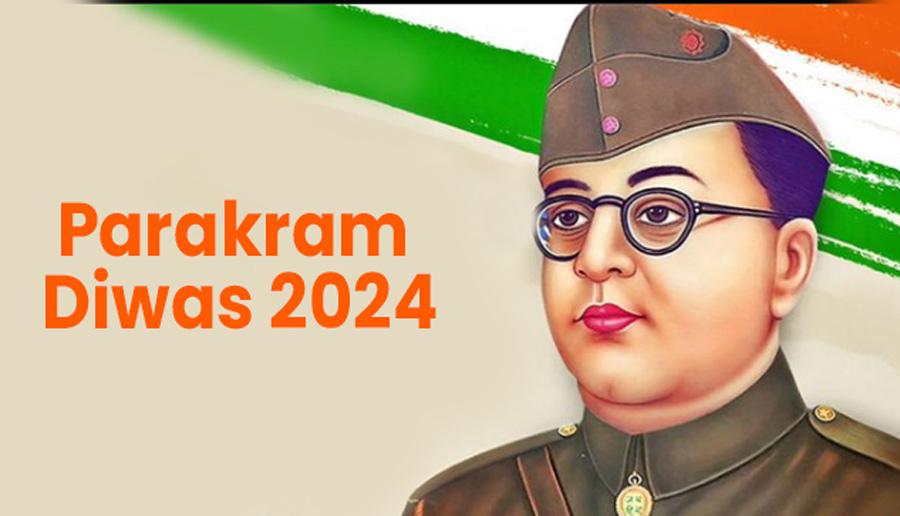PM Modi extends his greetings to the people of India on Parakram Diwas (Indian Express)

- 23 Jan 2024
Why is it in the News?
Prime Minister Narendra Modi extended greetings to the people of India on Parakram Diwas on 23rd January.
Why Parakram Diwas is Celebrated?
- The government officially announced on January 19, 2021, that January 23 be observed as Parakram Diwas in order to pay tribute to Netaji’s relentless pursuit of India’s freedom.
- The government of India has decided to celebrate his birthday on the 23rd day of January every year as “PARAKRAM DIWAS” to inspire people of the country, especially the youth, to act with fortitude in the face of adversity as Netaji did, and to infuse in them a spirit of patriotic fervour,” the Centre had said in a notification.
- Parakram Diwas, which translates to “Day of Valour”.
- In 2021, the first event took place at Victoria Memorial Hall, Kolkata.
- In 2022, a hologram statue of Netaji was unveiled at India Gate, and in 2023, the 21 largest unnamed islands of Andaman & Nicobar Islands were named after the 21 Param Vir Chakra awardees and a model of National Memorial dedicated to Netaji which was supposed to be built on Netaji Subhas Chandra Bose Dweep, was unveiled.
Key Facts About Subhas Chandra Bose:
- Born on January 23, 1897, in Cuttack, Orissa.
- In 1920, he successfully passed the civil service examination but resigned from his position in April 1921 after learning about the nationalist turmoil in India.
- A prominent Indian nationalist leader, he played a pivotal role in the Indian independence movement against British colonial rule.
- Joined the Indian National Congress and actively participated in the struggle for independence.
- Elected president of the Indian National Congress for two consecutive terms but resigned due to ideological conflicts with Mahatma Gandhi.
- In 1939, Bose founded the Forward Bloc, an organization aimed at unifying anti-British forces in India.
- Fled from India at the beginning of World War II, travelling to the Soviet Union, Germany, and Japan in pursuit of an alliance against British forces in India.
- With Japanese assistance, reorganized and led the Indian National Army, comprising Indian prisoners-of-war and plantation workers from Southeast Asia.
- Established the Azad Hind Government in exile with Japanese support, leading the Indian National Army in battles against the allies in Imphal and Burma.
